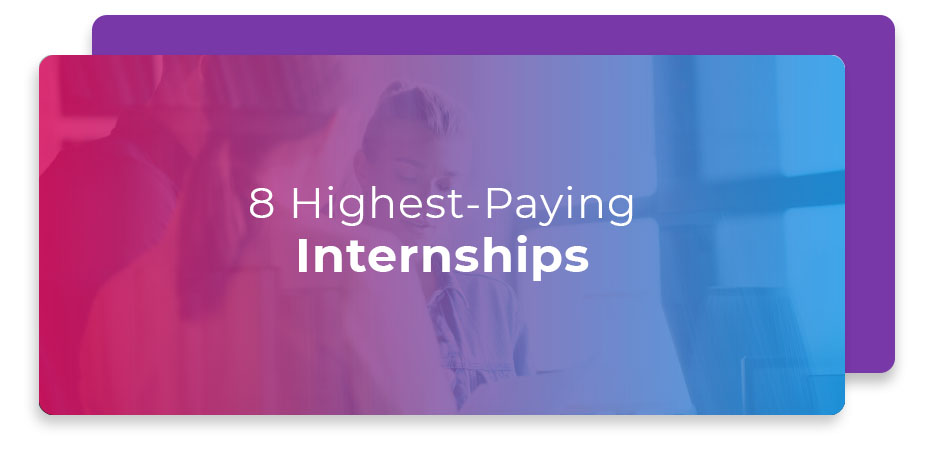So you’re sitting there, junior or senior year, and every adult in your life keeps asking THE QUESTION. You know the one. “What are you going to major in?” or worse, “What do you want to be when you grow up?”
I swear, they ask it like you’re supposed to have some life-changing epiphany at 17. Meanwhile, I changed my major three times in college and I’m still not 100% sure what I’m doing with my life.
Here’s what I wish someone had told me: instead of stressing about picking the “right” path, just start trying stuff out. And the best way to do that? Get a paid internship.

Why Internships Beat Pretty Much Everything Else
Okay, unpopular opinion time. Most high school career prep is completely useless. Those career assessment tests? Garbage. Job shadowing for a day? You learn nothing. Having someone come talk to your class about their job? Please.
You know what actually works? Showing up somewhere for weeks or months, doing real work, and seeing if you can tolerate it. Or better yet, if you actually like it.
My cousin Jake was dead set on being a veterinarian. Had the whole thing planned out – volunteer at animal shelters, get into a good pre-vet program, the works. Then he got an internship at a vet clinic junior year. Turns out he couldn’t handle putting animals down. Like, it completely destroyed him emotionally.
But here’s the thing – he also discovered he loved the business side of running the clinic. Now he’s studying business administration and wants to help vet practices with their operations. That internship didn’t ruin his dreams; it redirected them toward something that actually fits who he is.
And yeah, getting paid while you figure this out doesn’t suck either. I made $2,800 one summer working for a local nonprofit. Felt pretty good walking into senior year with my own money instead of having to ask my parents for everything.
The Weird World of What’s Available
The Big Name Tech Ones Everyone Talks About
Google’s CSSI program is legit, but good luck getting in. They get thousands of applications for maybe 300 spots. If you make it though, you’re basically getting a crash course in computer science from people who actually build the stuff you use every day.
NASA internships are wild. My friend Maria spent a summer analyzing data from the Hubble telescope. Like, actual space data. She was 16. The craziest part? She originally applied thinking it would look good on college apps, but she ended up loving astronomy so much she’s majoring in it now.
NIH has these research programs where high schoolers work in actual labs. Not cleaning test tubes – doing real research alongside PhD scientists. The applications are brutal though. They want to see that you can handle scientific thinking, not just that you watched Grey’s Anatomy and think medicine is cool.
Stuff You Probably Never Considered
Bank of America has this program where you work with local nonprofits for eight weeks. I know, I know – banking sounds boring. But you’re not doing banking. You’re learning how organizations actually function, how to manage projects, how to work with difficult people. Plus it pays decent money.
Local newspapers and radio stations almost always need help. You might start by just updating their social media, but you’ll end up learning how news actually gets made. In our post-fake news world, understanding media literacy is pretty valuable.
Museums, zoos, aquariums – they all have education departments that hire high school interns. You get to work with kids, learn about science communication, and figure out if you’re the type of person who can explain complex stuff to five-year-olds without losing your mind.
Your local government probably has internship programs too. City planning, parks and recreation, even the mayor’s office. Sounds boring but you’d be surprised how much drama happens in local politics. Plus you learn how things actually get done (spoiler: very slowly).
The University Goldmine
This is the secret nobody tells you. Universities need help with research projects in literally every department. Not just science – history professors need help digitizing archives, psychology researchers need people to help run studies, economics departments analyze data.
The best part? Professors are usually excited to work with motivated high school students. They remember what it was like to be curious about everything. I spent a summer helping a sociology professor study social media usage patterns. Mostly I was coding survey responses, but I learned more about research methods than I did in any high school class.
Actually Getting One (The Part That’s Actually Hard)
Let me be real with you. Getting a good internship takes work. Not just the application stuff, but figuring out what you actually want to try.
Start by admitting you don’t know what you want. That’s fine. I didn’t either. Make a list of things that don’t make you want to die. Not “find your passion” – just stuff that seems mildly interesting. Engineering? Writing? Working with animals? Helping people? Start there.
Timing matters way more than you think. The fancy programs everyone talks about? Their deadlines are insane. Google’s stuff opens in October for the following summer. NASA’s even earlier sometimes. If you’re the type who procrastinates (hi, it’s me), local opportunities might be better. Small businesses and nonprofits often hire year-round.
Your resume is probably better than you think. Yeah, you don’t have work experience. Nobody expects you to. But you’ve done stuff. You organized that fundraiser for drama club. You tutored your little brother in math. You worked that terrible job at the ice cream place for three months. All of that counts.
Cover letters are weird but important. Don’t write some formal business letter like it’s 1995. Write like you’re emailing someone you respect but don’t know well. Be specific about why their organization interests you. If you’re applying to an environmental nonprofit, mention that specific river cleanup project they did last year, not some generic “I care about the environment” nonsense.
The interview is just a conversation. They want to know if you’re normal, curious, and won’t be a pain to work with. Ask questions about what a typical day looks like. Ask what challenges they’re facing. Show that you actually want to contribute, not just pad your resume.
The College Application Thing
Everyone’s going to tell you internships look great on college applications. They’re right, but probably not for the reasons you think.
Admissions people read thousands of essays about “life-changing experiences.” Most of them are boring. What makes yours different isn’t that you did an internship – it’s what you actually learned about yourself.
The best college essay I ever read was from a kid who interned at a marketing firm and discovered he hated it. But instead of writing about failure, he wrote about realizing he was more interested in the psychology behind why people buy things than in actually selling them to people. That insight led him to study behavioral economics.
Recommendation letters from internship supervisors hit different too. Your teacher sees you in one context. Your boss sees you handling real pressure, real deadlines, real problems. When they write that you “consistently exceeded expectations” or “showed remarkable initiative,” admissions people know that’s based on actual work performance, not just being good at school.
The Stuff Nobody Warns You About
Some days will suck. You’ll spend hours doing data entry. You’ll sit in meetings that could have been emails. Someone will ask you to make copies and you’ll wonder if this is what adulting is really like.
Here’s the thing though – that’s valuable information too. My friend Alex thought she wanted to be a lawyer until she spent a summer at a law firm and realized most legal work is incredibly tedious document review. Now she’s studying journalism. That internship saved her three years of law school and a lifetime of hating her job.
You might also discover you’re bad at stuff you thought you’d be good at. I was convinced I wanted to be a teacher until I spent a summer working at a summer camp. Turns out I have zero patience for explaining the same thing seventeen times. Good to know before I committed to an education major.
The money part can be weird too. It’s awesome having your own cash, but it also means real responsibilities. You have to show up on time every day, even when you’re tired. You have to be professional even when you don’t feel like it. You might have to deal with office politics or difficult coworkers. It’s like a crash course in being an adult.
Just Do It Already
Look, I could keep writing about this forever, but at some point you just have to start applying to stuff.
Pick three things you’re curious about. Spend an hour googling “[your city] + internships + [that thing].” Email some organizations directly – most people ignore high school students, but some will be impressed that you took initiative.
Ask your parents if they know anyone doing interesting work. I know it’s awkward, but adults love helping motivated young people. That friend of your mom’s who works at the hospital? She might know about opportunities you’d never find online.
Check with your school’s guidance office, but don’t expect miracles. Some schools have great career services; others are basically useless. Worth a shot though.
The worst thing that happens is they say no. The best thing that happens is you spend a summer getting paid to figure out what you actually want to do with your life.
Applications for summer 2025 stuff are opening now. Stop overthinking it and just apply to something. Future you will thank present you for getting off the couch and trying something new.
Trust me on this one.






